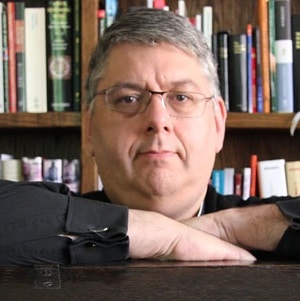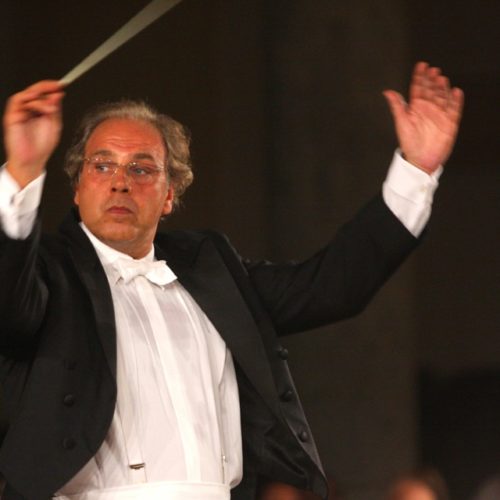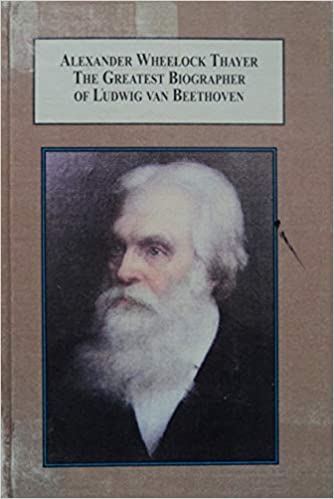Rasta original
Medieval Hebrew
Wedding version
Turkish delight
Verdi lite

image: Babylon-Berlin
Rasta original
Medieval Hebrew
Wedding version
Turkish delight
Verdi lite

image: Babylon-Berlin
The Dean of Sheffield Cathedral, the Very Reverend Peter Bradley, had this to say on the BBC today about why he sacked the choir.

1 ‘It’s a pause, not an ending.’
2 The choir ‘on occasion sang beautifully, but there was nobody there’.
3 There are ‘other places’ in Sheffield where young people can sing as ‘part of the Anglican tradition of church music’.
4 ‘We tried with great goodwill to look at other ways of recruiting.’
5 Covid’s ‘a good opportunity to rethink, begin again.’
Here’s another instalment, coming soon to a campus near you:
American Musicological Society Study Group on Music and Disability
Co-Sponsored with
SMT Scholars for Social Responsibility
SMT Music and Disability Interest Group
SMT Global Interculturalisms and Musical Peripheries
Call for Proposals
“Enfoldings and Divisions:” Musical Modulations and Debility
AMS/SMT 2020 Annual Meeting, Minneapolis, Minnesota
Thursday, November 5, to Sunday, November 8, 2020
https://bit.ly/2I5WUXC
What role do music and disability play in the histories, geographies, and politics of imperialism? How does music’s troubled relationship to bodies, senses, and minds, legitimize the disaster capitalism that perpetuates disastrous inequalities buttressed by white supremacy, white privilege, and, more recently, a pernicious liberal rhetoric that neatly sidesteps the work of dismantling these inequalities through empty forms of “inclusionism?”
Disability theorist Jasbir Puar argues that neoliberalism presses disability into the service of upholding and reinforcing white supremacy and privilege, through maintaining liberal racism and nationalist projects. In her recent book, The Right to Maim: Debility, Capacity, Disability (2017), Puar observes that a focus on disability culture grounded in rights-based discourses and positive assertions of
collective identity cannot be considered without taking into account the imperialist and colonialist legacies that perpetuate global, structural, and material inequalities. Examination of disability cultures and disability pride must take place in the context of liberal empowerment discourses, confronting difficult questions about who is able to participate, and who is excluded. To echo her
phrasing, disability culture is “enfolded” into the liberal project of colonization.
As a result, Disability Studies has left mostly unexamined the ways in which debility, in contrast to disability, targets bodies for injury and maiming along geopolitical and socioeconomic lines. The global South, ravaged by the imperialist and settler colonial projects of the global North, is a world of bodies debilitated by the latter’s relentless, ruthless, and unfettered pursuit of wealth and power. Engaging with Puar’s “political” model of disability, this joint meeting of the AMS Study Group on Music and Disability and co-sponsoring SMT Interest Groups interrogates how the “social model” of disability reinforces Euro-American perspectives of musical culture…
Can anyone enlighten us what this has to do with music or musicology?
Jasbir K. Puar is a US-based queer theorist and Professor and Graduate Director of Women’s and Gender Studies at Rutgers University, where she has been a faculty member since 2000

photo: Rutgers
The Viennese conductor Roberto Paternostro has posted the following:
I’ve been getting a lot of messages and well wishes lately.
Yes, yes. Unfortunately I am very seriously ill.
The next few months will be a tough fight against the disease and I’m confident I’m winning.
This is how life changes from today to tomorrow.
Thank you very much again!
He added:
The good news: Survived the first surgery and first chemotherapy. Unfortunately it continues… but I’m struggling!!
Paternostro, 63, was General Music Director of the Württembergische Philharmonie from 1991 to 2000 and from 1997 to 2007 at the State Theatre in Kassel. He was Music Director of the Israel Chamber Orchestra from 2009 to 2013 and has a far-flung international freelance career.

We wish him a speedy recovery.
The composer and conductor Johnny Gregory, known for untold numbers of light-music arrangements, died during April Covid peak.
He conducted the 1961 Eurovision Song Contest entry and was principal guest conductor of the BBC Radio Orchestra from 1974.

Graduate students at the University of North Texas are demanding the head of Dr Timothy Jackson, a professor who called out the anti-racist academic Philip Ewell as an anti-semite. The details of their disagreement in the Journal of Schenkerian Studies can be found here.
The graduate students, supported by terrified faculty members, have issued the statement below. Ewell has prudently retreated from social media. Reasonable people should do their best to avoid UNT College of Music for the next few years.
If you want to read the source of the infection, click here.
Student statement:
We are appalled by the journal’s platforming of racist sentiments in response to Dr. Philip Ewell’s
plenary address at the Society of Music Theory annual meeting in 2019. Furthermore, we condemn the
egregious statements written by UNT faculty members within this publication. We stand in solidarity
with Dr. Philip Ewell and his goals to address systemic racism in and beyond the field of music theory.
As graduate students at UNT, we are compelled to provide further context and to demand action to
effect meaningful change. We would like to make it clear that the JSS is not a graduate student
journal; since 2010 (Vol. 4), it has been run primarily by Drs. Timothy Jackson and
Stephen Slottow. Many of us recently discovered that the journal is presented as graduate-student
run in some contexts; in fact, there is little student involvement beyond copy-editing, and students
have absolutely no say in the content of the JSS. In fact, outside of the advisory board (and in particular
Dr. Jackson), we have no clear understanding of who oversaw the publication of the responses to the
plenary session. As we join the search for answers to these issues, we will be working both publicly and
privately to change every part of the MHTE Division and College of Music (CoM) at UNT that
allowed faculty to platform racism in our name.
To this end, we as UNT graduate students demand the Journal of Schenkerian Studies should
immediately take the following steps, and we call on the UNT College of Music and university at large to
ensure these steps are taken.
1. Publicly condemn the issue and release it freely online to the public. Given the horrendous lack
of peer review, publication of an anonymous response, and clear lack of academic rigor, this issue of
the JSS should release an apology for its content and promote transparency by granting the public
access to it. We believe that all contributors should be held fully accountable for their
comments, which must not be hidden for the sake of the self-preservation of any involved
parties. Furthermore, we must learn from these mistakes rather than attempt to erase them. By
making this volume accessible to the public with a disclaimer from the CoM, we hope to enable all
scholars to address this problematic “discourse.”
2. Provide a full public account of the editorial and publication process, and its failures.
Throughout the publication of this issue, significant irregularities occurred in the acceptance and
solicitation processes, whether individuals with the title of editor were permitted to edit content,
and how the contents of Issue 12 were approved by any responsible oversight process. JSS must
make a public account of the process so individuals who intentionally subverted academic discourse
can be held accountable by their respective institutions.
The UNT College of Music has issued this surrender document:
The University of North Texas College of Music has begun a formal investigation into the conception and production of the twelfth volume of the Journal of Schenkerian Studies, which is published by the Center for Schenkerian Studies and UNT Press. The University, the College of Music, and the Division of Music History, Theory, and Ethnomusicology reaffirm our dedication to combatting racism on campus and across all academic disciplines. We likewise remain deeply committed to the highest standards of music scholarship, professional ethics, academic freedom, and academic responsibility.
John W. Richmond, Ph.D.
Professor and Dean of the UNT College of Music
Benjamin Brand, Ph.D.
Professor and Chair of the UNT Division of Music History, Theory, and Ethnomusicology
Musical protestors outside the prime minister’s residence last night.
Some good sopranos there.

The Salzburg Festival has opened with Richard Strauss’s Elektra in the well-distanced Felsenreitschule.
The audience roared it to the rafters.
The Lithuanian soprano Ausrine Stundyte in the title role has been called ‘phenomenal’. Franz Welser-Möst conducted.

(c) Salzburg Fetpiele / Bernd Uhlig
Appointed barely two years ago as director of the Richard Strauss Festival in Garmisch-Partenkirchen, Alexander Liebreich has emailed his resignation to the town council.
Not enough cash or funds to tun a proper festival, he complained.

Since the council never got round to sending him a contract, the post is vacant immediately.
Nice venue.

Welcome to the 105th work in the Slipped Disc/Idagio Beethoven Edition
Sehnsucht, woO 134
Beethoven is a nightmare for biographers.
His life was uneventful. He was born and raised in Bonn, moved to Vienna in his early 20s and stayed there for the rest of his life. His romantic attachments were unfulfilled, his other relationships were rough and remote – except the love for his nephew, who fled when the deaf composer became too overbearing. For all that we have conversation books where he communicated with visitors, together with reminiscences of his close acquaintances, getting inside Beethoven’s character is a near-impossible task. Vienna’s most popular biographer Stefan Zweig, a fanatical collector of Beethoven artefacts, steered clear of taking on the insuprable task. The Frenchman Romain Rolland wrote a novelised life of Beethoven in 1903 and a ten-volume cycle, Jean Christophe (1904-12), in which the hero bears many of Beethoven’s characteristics.
Personal memoirs by Ries and Wiegler appeared in 1838, a decade after Beethoven’s death, followed by Anton Schindler’s more comprehensive account two years later, a text which laid the foundations for Beethoven as Romantic hero. Inaccurate and distorted, these reminiscences are neither reliable nor revealing of its subject’s mind. Schindler was estranged from Beethoven from 1824 until the last months of his life.
The first comprehensive biography was undertaken by an American, Alexander Wheelock Thayer (1817-1897), a librarian at Harvard. Annoyed by Schindler’s inconsistencies, Thayer made multiple trips to Europe to track down original documents and interview survivors. For reasons never fully apparent, Thayer had his work published in German – three volumes in his lifetime and two posthumous. ‘I fight for no theories and cherish no prejudices,’ wrote Thayer, ‘my sole point of view is the truth.’

His set was eventually produced in an English edition by the New York critic Henry Edward Krehbiel in 1921 and has stood ever since as the cornerstone biography, albeit neither a literary work nor one that kept up with the getle flow of new discoveries. Germans relied more on Ludwig Nohl, whose three-volume work (1864-77) contains detailed musical analysis.
Half a century later a New York record-label owner by name of Maynard Solomon wrote the first biography to supplant Thayer. Solomon, who founded Vanguard Records with his brother Seymour (their star performer was Joan Baez) and was the first to claim that Schubert was gay, took a Freudian analytical perspective on Beethoven’s relations with his family and loved ones. Solomon also came out as a Marxist, although this aspect of his thinking is less obvious in his empatheic, highly readable portrait of the composer and his perpetual demons.
A British academic, Martin Cooper, wrote a study of Beethoven’s last decade which, written from the hands-on view of a capable pianist, remains an indispensable guide to following the composer’s thoughts from one score to the next. In 2014 the American composer Jan Swafford took almost 1,000 pages of ‘Beethoven: Anguish and Triumph’ to describe the composer’s torments in creating a symphony out of thin air. Swafford’s personal empathy is engulfing and his tone authoritative. His biography is unlikely to be overtaken any time soon simply because there is little more to add to the biography, and the interest in Beethoven in shrinking.
That said, there are some fabulous studies of individual works. The Argentine-French scholar Esteban Buch, for instance, follows the ninth symphony from first origins to symbolic distortions from Liszt through Hitler to the European Union. Another Oxford academic, Laura Tunbridge has written an adroit guide to Beethoven’s life ‘in nine pieces’.
But that’s enough about the books. I was meaning to write about a negelcted Beethovne song that exists in four different versions and never made it into the canon. Sehnsucht (nostalgia), from Goethe’s novel Mignon, occupied Beethoven for 15 years, from 1808 to 1823. It’s about a love that is hopeless from the moment it starts.
Was zieht mir das Herz so?
Was zieht mich hinaus
Und windet und schraubt mich
Aus Zimmer und Haus?
Wie dort sich die Wolken
Um Felsen verziehn,
Da möcht’ ich hinüber,
Da möcht’ ich wohl hin!
What tugs my heart so
What tugs me inside out?
And twists and turns me
Out of room and house?
As the clouds there
Pass over the rocks
I must go go over there
I must go there!
Beethoven had trouble with Goethe’s irregular rhythms and was troubled further by his own unfulfilled romantic longings. Each version of the song exposes more difficulties until the final revison simplifies Goethe and achieves some kind of catharsis. Goethe’s own longing in writing this poem was not for a woman, but for a return to Italy.
Perhas because the song failed to make it into the main Beethoven catalogue there are relatively few interpretations on record.
Dietrich Fischer-Dieskau, for instance, did not attempt this quadruple version of the song, and there’s not much in the Lied book that escaped his attention. Hermann Prey deputises admirably in the first version, the lightness of his tone preparing us sensitively for the death of love.
Ann Murray is captivating in all four versions, singing well within herself and letting Beethoven’s pathos flow through Goethe’s words with supportive pianism from Ian Burnside.
The only other contender is a 2020 recording by Ian Bostridge, with Antonio Pappano at the piano. Bostridge sings a poetic line in the way Peter Pears used to do, slightly didactic in manner and will syllabic precision. Pappano slightly over-dramatises. I prefer Prey and Murray but your opinion may differ.